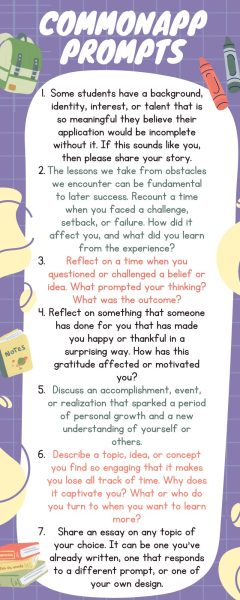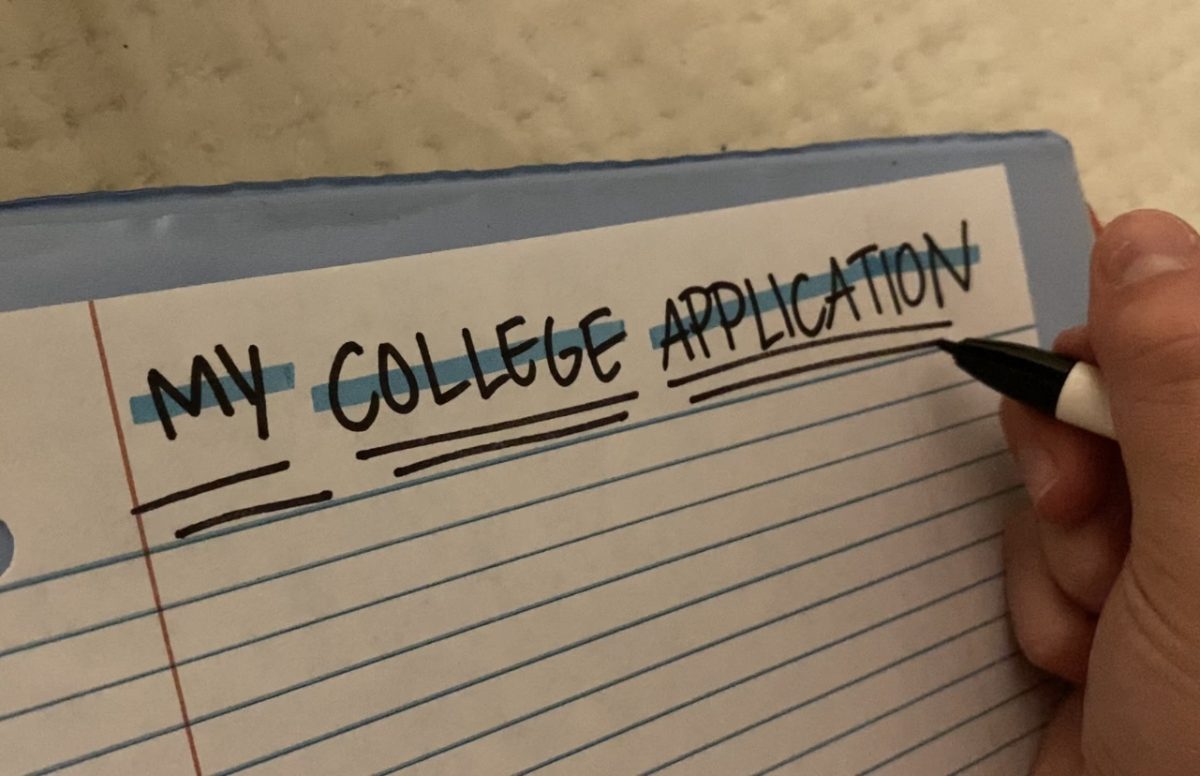As seniors begin their college applications and juniors start searching for the institutions they wish to attend, the road to post-high school education may seem daunting. However, the straightforward and simple route provided by the CommonApp organization aids students in their journeys from college searches to applications to scholarships.
“I cannot speak to specific benefits of the CommonApp site, but I will say that it is amazing for students to have so many resources and everything else they need in one place. When I applied to college, every college had its own application process, requirements and physical application. You had to mail everything to each individual school and then mail transcripts and recommendations separately. The concept of a ‘common application’ is already a huge improvement in streamlining an overwhelming process. Any other resource it provides seems like an extra benefit,” magnet American Literature teacher Alexandra Yeganagi said.
The CommonApp was formed in 1975 when fifteen individual universities collaborated to rethink the application process. Whereas colleges historically admitted students based on Latin and Greek entrance exams, these institutions decided that young adults needed an easier way to handle all college-related affairs. What the average college applicant now knows as the online CommonApp portal once served as identical applications within a booklet that contenders would send to universities individually.
In the early stages of the CommonApp, only Ivy League institutions accepted this generic submission. The process remained limited to these private universities until 2001 when the program incorporated its first public schools. Today, the CommonApp also houses scholarships, financial aid and college counseling resources to help any and every applicant chart their path. To join the portal, students must simply create a profile, add their desired colleges to their list, answer the general CommonApp questions as well as the college-specific inquiries and hit apply.
The non-profit organization also assists students in distinguishing between different deadlines, application fees and submission requirements. CommonApp presents each user with a spreadsheet of their college list and important information regarding necessary details under the “Application Requirements” button. The site presents aspects such as standardized testing policies, additional supplements and the different amounts and types of recommendations, which consolidates the data into a singular space.
Though this approach does provide helpful tools and resources for applicants, the driving force of applications centers around one aspect: the CommonApp essay. Over 1,000 colleges through the CommonApp portal require the applicant’s personal essay as part of their submission, so the paper’s excellence remains vital. The organization provides seven prompts that upcoming college applicants may choose from. From gratitude to accomplishment, the wide range of these questions allows high school seniors to write about any characteristic or experience that adds to their individuality.

Essentially, college admissions boards look for unique prospective students who bring new perspectives to their campus. These prompts present a head start that helps students narrow down their personal experiences and choose a topic that will present their personality the clearest.
Though seniors typically write their essays during the college application season, classes around NC begin to read prompts and look at topics as early as junior year. Yeganagi prepares her magnet juniors during class Support, Preparation, Enrichment, Acceleration and Remediation (SPEAR) time through a series of brainstorming activities and essay feedback.
“A few years ago, I realized that I could ease some of that burden and overwhelm of senior year by introducing the college essay junior year. Four of the purposes of SPEAR are to support, prepare, enrich and accelerate student learning. I thought, well, if I could support my students by preparing them for the application process, while also enriching and accelerating their narrative writing skills, it would be a win-win,” Yeganagi said.
While the journey of discovering interests beyond the walls of NC may present stresses and challenges, the establishment of CommonApp has proved a useful tool for college applicants. So, as transcript requests and submission deadlines approach the Class of 2025, the CommonApp portal remains an advantageous and direct website to allow all students to achieve their goals.

















